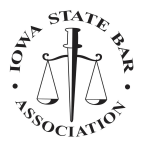|
Many children of the boomer generation are now confronted with the responsibility of caring for their aging parents. Although many elderly people function independently, some require a great deal of assistance. It may become necessary to explore the possibility of obtaining designation as a guardian. In some cases, elder care plans may already be in place through an advanced directive or through power of attorney. If there are no provisions, it may be necessary to petition a court for an appointment as the guardian.
A person must be declared incompetent in order for guardianship over him or her to be determined, an issue that may be contested by the person. It is important to note that such an appointment may only be made if evidence is provided of a prospective ward lacking the mental capacity needed to conduct personal affairs. This person may choose to object to the appointment of a guardian, and a lawyer may be retained to represent their interests. In seeking guardianship of an aging parent, it is important to recognize that by gaining legal authority for that individual’s decisions and affairs, he or she will be losing many legal rights. Additionally, a great deal of responsibility and accountability is placed on the new guardian. A guardian is expected to use input from a ward as much as possible, and actions are restricted to those authorized by a court. In some cases, responsibilities may be designated to different parties. Regular accounting and reports are required. In seeking guardianship, it may be important to work with a lawyer who is experienced with elder care issues. Guardianship is a big responsibility, and it it is helpful to discuss the implications and requirements with a lawyer prior to initiating the process.
0 Comments
Your comment will be posted after it is approved.
Leave a Reply. |
What We Do Really Well Workers' Compensation
Motor Vehicle Accidents
Personal Injury
Nursing Home Neglect
Categories
All
Archives
April 2019
|
- Home
- Attorney Profiles
- Firm Overview
-
Personal Injury Practice Areas
- Workers' Compensation
- Motor Vehicle Accidents
- Personal Injury
-
Nursing Home Neglect
- Nursing Home Neglect Overview
- Nursing Home Injuries Info
- Negligence in the Nursing Home
- Nursing Home Injuries FAQs
- Nursing Home Injuries Overview
- Nursing Home Injuries Resources
- Proving Damages in Nursing Home Abuse
- Protection of Nursing Home Residents in Iowa Nursing Homes
- Nursing Home Resident Rights
- Social Security Disability
- Client Reviews
- Contact Us
- Home
- Attorney Profiles
- Firm Overview
-
Personal Injury Practice Areas
- Workers' Compensation
- Motor Vehicle Accidents
- Personal Injury
-
Nursing Home Neglect
- Nursing Home Neglect Overview
- Nursing Home Injuries Info
- Negligence in the Nursing Home
- Nursing Home Injuries FAQs
- Nursing Home Injuries Overview
- Nursing Home Injuries Resources
- Proving Damages in Nursing Home Abuse
- Protection of Nursing Home Residents in Iowa Nursing Homes
- Nursing Home Resident Rights
- Social Security Disability
- Client Reviews
- Contact Us
Located in South Des Moines, Iowa, the Hemminger Law Firm provides experienced personal injury representation for clients throughout Central Iowa, including Polk County, Warren County, Marion County, Lucas County, Madison County and Dallas County, as well as the cities Cedar Rapids, Ames, Marshall Town, Fort Dodge, Indianola, Chariton and Ottumwa.
© 2024 Hemminger Law Firm. All rights reserved.
Site powered by Digital BusinessEdge


